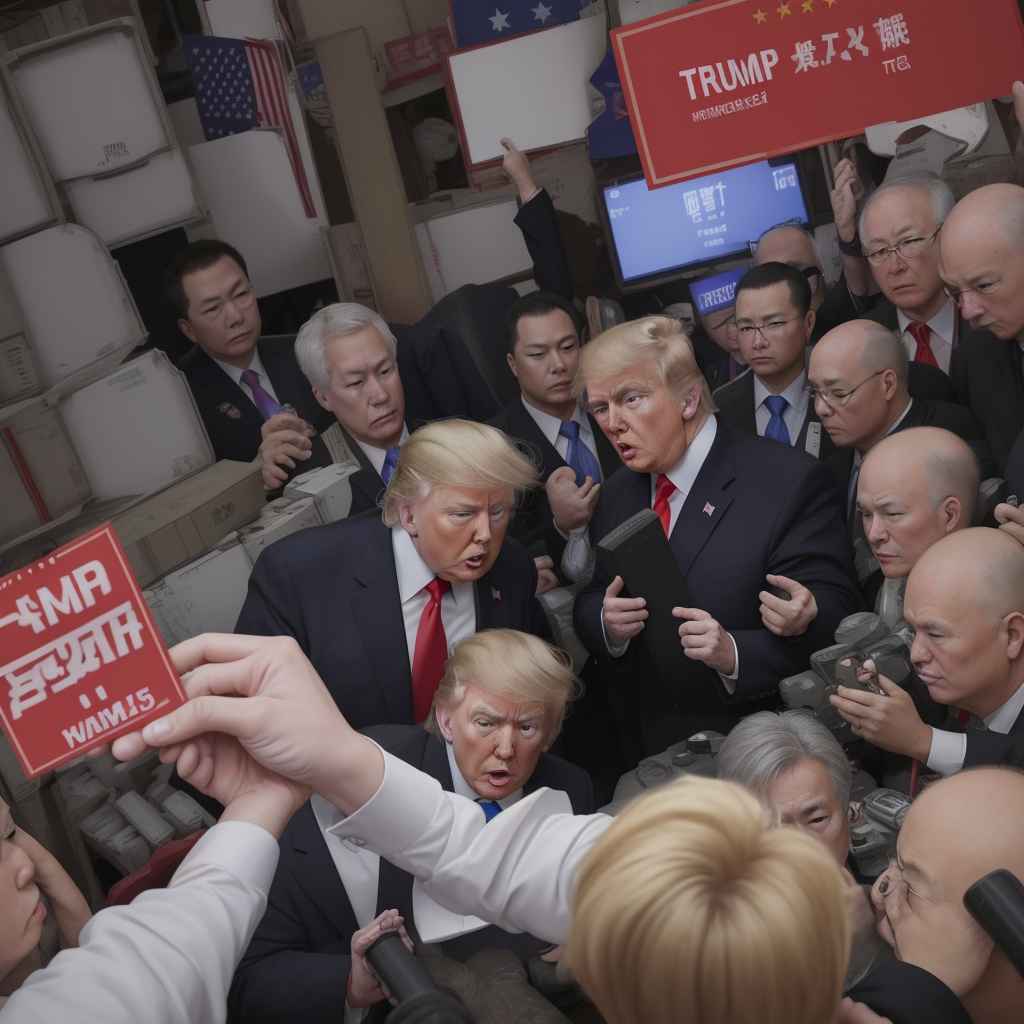
US Imposes Sweeping New Tariffs on China Amid Global Economic Turmoil
Trump Vows Huge New China Tariffs as Markets Nosedive
Washington - US President Donald Trump yesterday vowed to impose "huge" new tariffs on China, sparking a global market rout and fuelling concerns about a trade war between the world's two largest economies.
The surprise announcement came as the Dow Jones Industrial Average plummeted by over 700 points, wiping out all its gains for the year, while the S&P 500 index fell by 2.5% and the Nasdaq composite sank by 3.2%.
The US Treasury market also saw a major selloff, with yields on 10-year notes surging to their highest level since 2011.
The tariff threat follows a meeting between Mr Trump and Chinese President Xi Jinping at the G20 summit in Osaka, Japan, where the two leaders failed to reach a deal to end the ongoing trade tensions.
In a tweet, Mr Trump claimed that "China is not helping us" and that he would impose "huge" new tariffs on the country, which he claimed would be "far greater" than the current 25% tariff on $250 billion worth of Chinese goods.
The move is likely to be met with fierce resistance from China, which has already retaliated against US tariffs with its own levies on American goods.
Economists warned that the escalating trade tensions could have serious consequences for the global economy, including higher prices, reduced consumer spending and lower economic growth.
"This is a major escalation in the trade war and could have significant implications for the global economy," said Michael Gapen, chief US economist at Barclays. "Markets are pricing in a higher risk of recession."
The US Chamber of Commerce also weighed in, saying that the tariffs would "hurt American businesses and consumers" and urging the administration to pursue a more targeted approach to addressing trade imbalances.
The move comes as the US and China are already engaged in a protracted trade war, with tariffs imposed on billions of dollars' worth of goods in both directions.
The US has imposed tariffs on $250 billion worth of Chinese goods, including electronics and machinery, while China has retaliated with tariffs on $120 billion worth of US goods, including soybeans and aircraft.
The tensions have been fueled by long-standing disagreements over trade and intellectual property issues, as well as China's economic practices and human rights record.
The US and China have been trying to negotiate a trade deal for months, but talks have been stalled over issues such as forced technology transfers and access to China's markets.
The latest tariff threat has sparked concerns about the potential impact on global supply chains, as well as the potential for a broader economic slowdown.
The International Monetary Fund (IMF) has warned that the trade tensions could reduce global economic growth by up to 0.5 percentage points in 2020.
The US and China have until September 1 to reach a deal, or the tariffs will automatically increase to 30% from the current 25%. The US has also threatened to impose tariffs on an additional $300 billion worth of Chinese goods.
The White House has said that it is open to negotiating a trade deal, but that the tariffs are necessary to address China's "unfair" trade practices.
The US has also accused China of stealing American intellectual property and forced technology transfers.
The escalating trade tensions have sparked concerns about the potential impact on global supply chains, as well as the potential for a broader economic slowdown.
The International Monetary Fund (IMF) has warned that the trade tensions could reduce global economic growth by up to 0.5 percentage points in 2020.
The US and China have until September 1 to reach a deal, or the tariffs will automatically increase to 30% from the current 25%. The US has also threatened to impose tariffs on an additional $300 billion worth of Chinese goods.